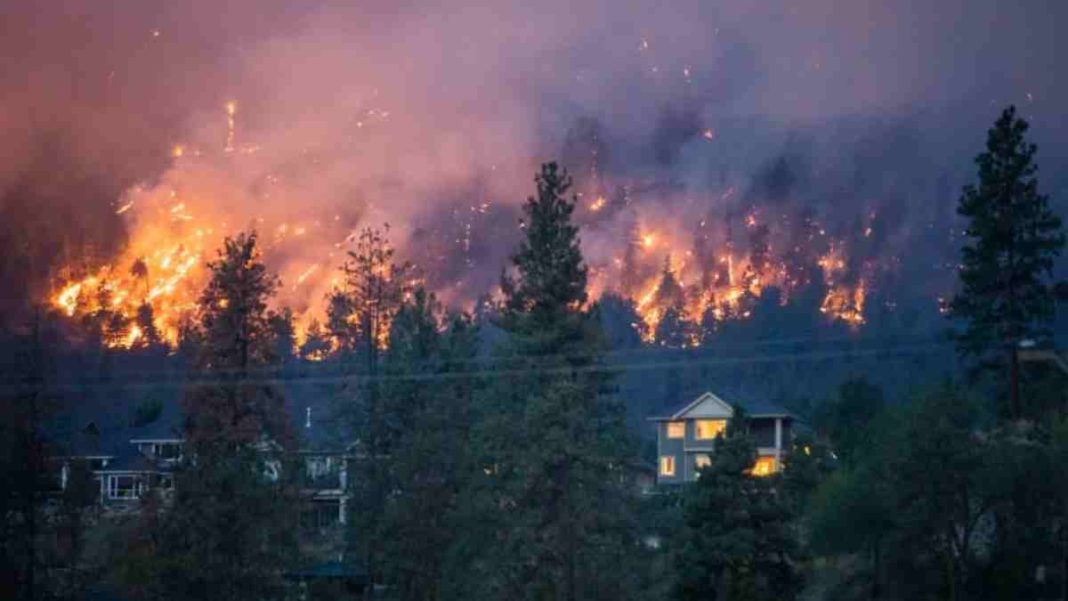CANADA. British Columbia: The western province of British Columbia plunged into a state of emergency on Friday as firefighters battled wildfires in the hills near West Kelowna, prompting a mass evacuation of residents from their homes.
West Kelowna, a city of 36,000 residents situated about 180 miles east of Vancouver, bore witness to billowing smoke and flames.
Evacuation measures were also underway north of Kelowna, a neighboring city with approximately 150,000 inhabitants, nestled along the shores of Okanagan Lake.
Smoke blanketed the valley around the lake, as observers in West Kelowna watched the unfolding fire. Airspace restrictions were imposed earlier to facilitate unimpeded water bomber operations.
In an address, British Columbia Premier David Eby declared, “We are grappling with the most severe wildfire season in our province’s history. This unprecedented situation has reached a critical point tonight. In the past 24 hours, the situation has escalated and deteriorated rapidly.”
Within the last day, the count of individuals issued evacuation orders skyrocketed from roughly 4,500 to nearly 15,000. An additional 20,000 people are currently under evacuation alerts.
Eby acknowledged the uncertainty of the situation, stating, “The current circumstances are unpredictable, and challenging days lie ahead.”
Officials noted that earlier, over 2,400 properties in West Kelowna were evacuated, and several structures suffered damage during the night.
Jason Brolund, Chief of the West Kelowna Fire Department, shared with the press, “We fought tenaciously last night to protect our community. The night turned into day due to the orange glow of the clouds and the fire.”
This year’s record-breaking Canadian wildfire season, characterized by over 1,000 active fires across the nation, is underscored by the devastating blazes and their far-reaching consequences on lives and landscapes.
Around 1,425 kilometers (885 miles) to the northeast, the large fire menacing Yellowknife, the capital city of the Northwest Territories, displayed minimal progress on Friday, as reported by the territorial fire service, owing to successful firefighting efforts.
However, the fire continues to be driven by strong winds towards the city, potentially nearing its outskirts by the weekend. The fire service anticipates the upcoming days to be “critical and challenging.”
The fire currently resides roughly 15 kilometers (9 miles) northwest of the city. Fires burn on both sides of the lone highway exiting the town, which remains accessible.
Brent Saulnier, a visitor, recounted, “Both sides of the road are on fire… it’s a surreal experience.”
As of Friday evening, an estimated 19,000 of Yellowknife’s 20,000 residents had evacuated, according to Shane Thompson, Minister for the Territories’ Environment and Communities.
Amid the backdrop of climate change exacerbating the wildfire crisis, officials attribute this year’s surge in fires, along with their heightened intensity, to drought and soaring temperatures. Many regions in Canada are grappling with an unusual dry spell.
Also Read: Wildfire Siren Silence: Maui Authorities Defend Their Decision



